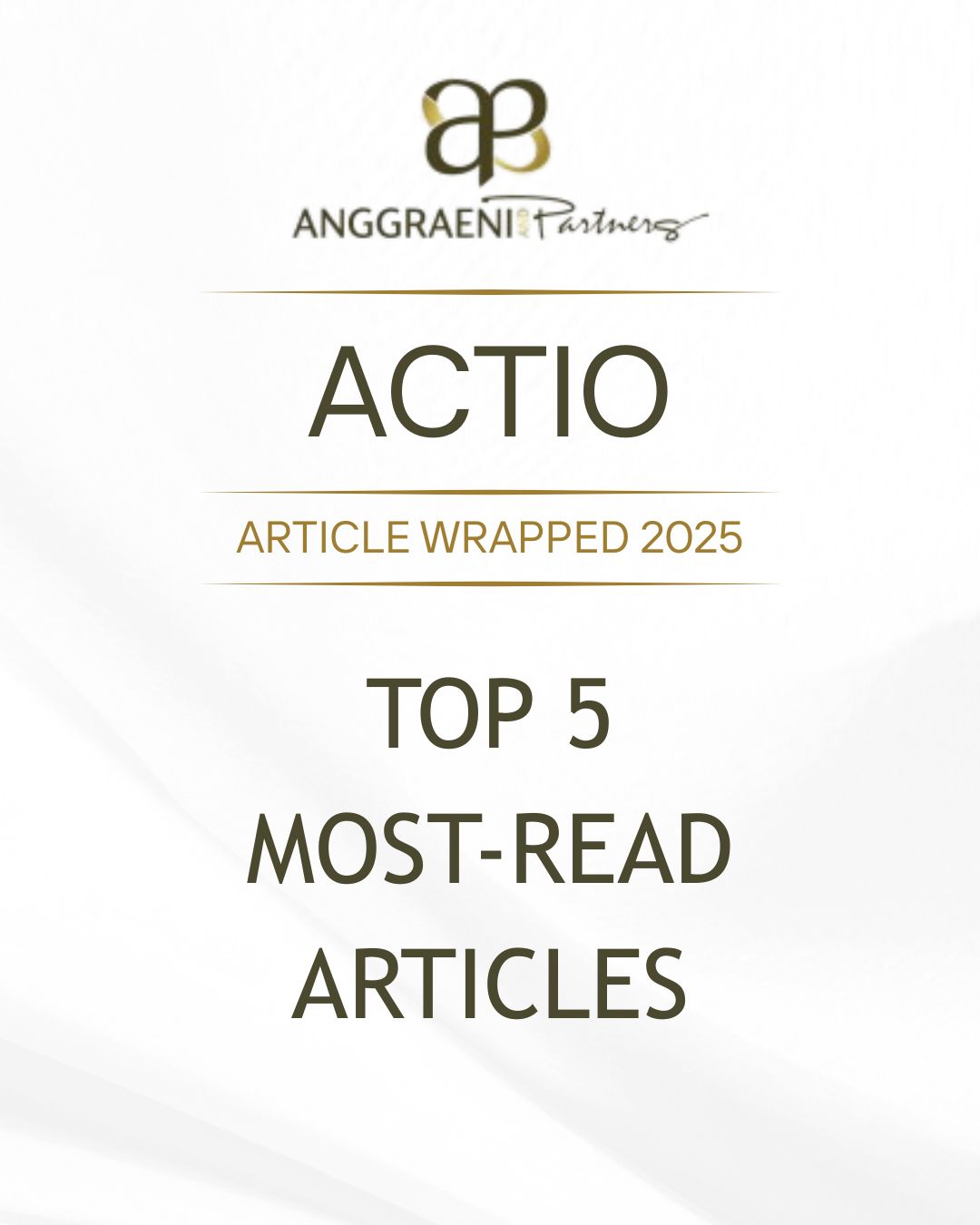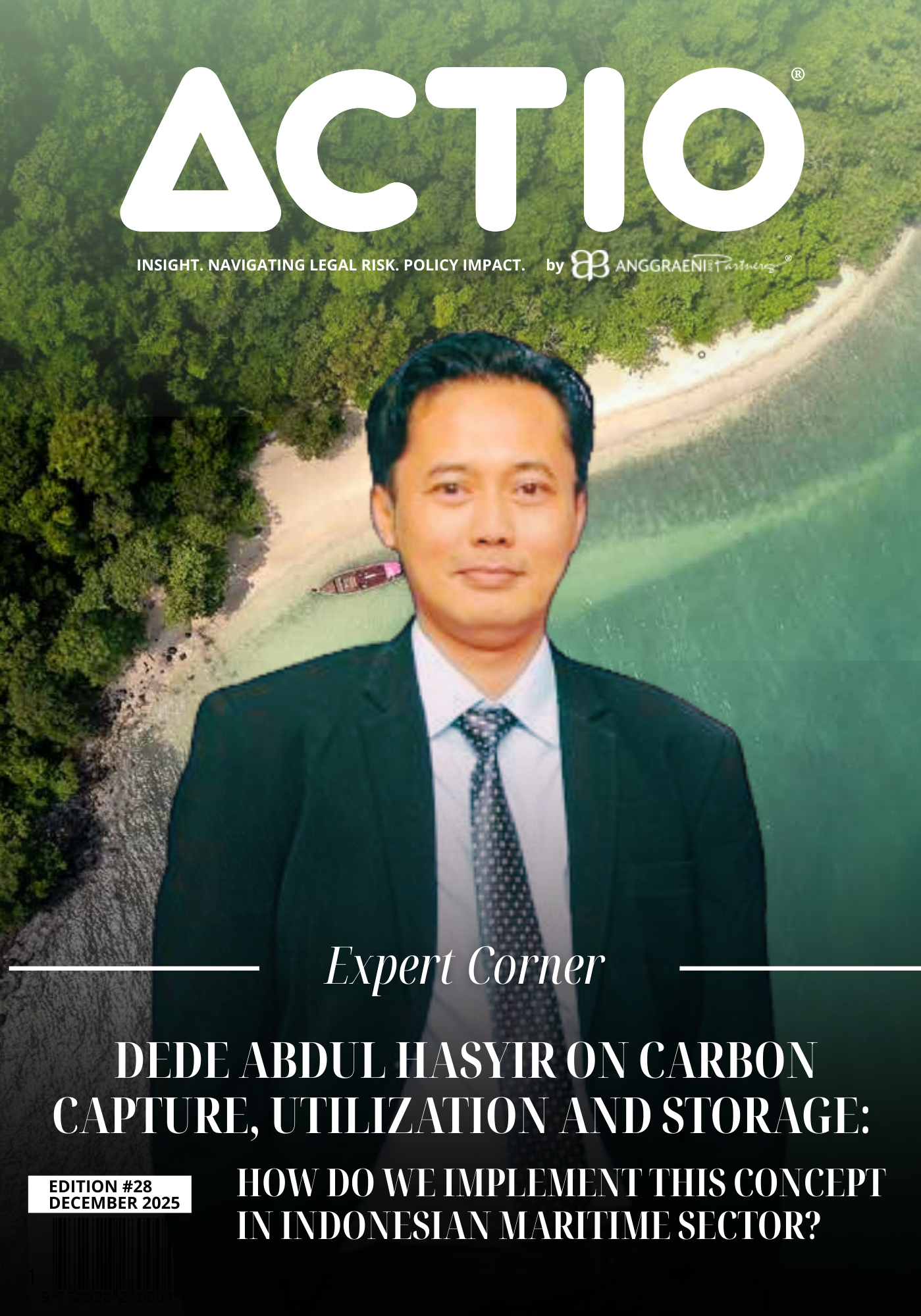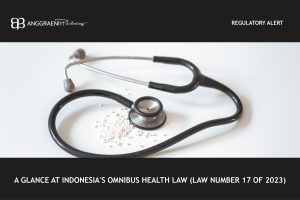Regulatory Alert : A Glance at Indonesia’s Omnibus Health Law (Law Number 17 of 2023)
BACKGROUND
Indonesia’s healthcare sector has undergone a significant transformation with the enactment of the Omnibus Health Law (Law No. 17 of 2023). This law, coming into force in August 2023, aims to address the systemic vulnerabilities in Indonesia’s healthcare system exacerbated by the COVID-19 pandemic. It replaces 11 existing laws,[2] introducing sweeping reforms to revitalize healthcare services, technology, and human resources.
KEY REQUIREMENTS
- Primary and Referral Services: Expansion of hospital activities to include clinics, pharmacies, and laboratories.[3]
- Health Resilience Systems: Focus on domestic sourcing for medical raw materials and promoting domestic healthcare enterprises.[4]
- Healthcare Personnel: Allows qualified foreign medical and healthcare personnel to practice in Indonesia, subject to stringent requirements.[5]
- Licensing: Streamlining of licensing procedures for medical and healthcare personnel, including indefinite validity of Registration Certificates (STR) and relaxation of practice location restrictions for SIP (Surat Izin Praktik).[6]
- Legal Framework: Structured approach to address medical malpractice and negligence, balancing protection for medical professionals and patients’ rights.[7]
IMPLICATION
The Omnibus Health Law marks a pivotal shift in Indonesia’s healthcare landscape. It introduces a more integrated and comprehensive approach to healthcare delivery, emphasising the enhancement of healthcare services through technological advancements and the augmentation of human resources. The law’s emphasis on domestic industry and foreign healthcare personnel participation signals a robust move towards a self-reliant and globally competitive healthcare sector.
CONSIDER
Legal and healthcare entities must consider the new regulatory landscape introduced by the Omnibus Health Law. This includes adapting to expanded business activities for healthcare facilities, navigating the revised licensing regime, and complying with the new standards for foreign healthcare personnel practice. Additionally, the law’s focus on domestic industry and healthcare technology underscores the need for strategic alignment with these priorities.
CONCLUSION
The Omnibus Health Law is a transformative legislation to revitalise Indonesia’s healthcare system. It offers a more responsive, comprehensive, and cost-effective framework, addressing long-standing challenges and paving the way for a significant positive transformation. Entities operating in the healthcare sector must closely monitor and adapt to these changes to align with the new regulatory environment.
DISCLAIMER:
This disclaimer applies to the publication of articles by Anggraeni and Partners. By accessing or reading any articles published by Anggraeni and Partners, you acknowledge and agree to the terms of this disclaimer:
No Legal Advice: The articles published by Anggraeni and Partners are for informational purposes only and do not constitute legal advice. The information provided in the articles is not intended to create an attorney-client relationship between Anggraeni and Partners and the reader. The articles should not be relied upon as a substitute for seeking professional legal advice. For specific legal advice tailored to your individual circumstances, please consult a qualified attorney.
Accuracy and Completeness: Anggraeni and Partners strive to ensure the accuracy and completeness of the information presented in the articles. However, we do not warrant or guarantee the accuracy, currency, or completeness of the information. Laws and legal interpretations may vary, and the information in the articles may not be applicable to your jurisdiction or specific situation. Therefore, Anggraeni and Partners disclaim any liability for any errors or omissions in the articles.
No Endorsement: Any references or mentions of third-party organizations, products, services, or websites in the articles are for informational purposes only and do not constitute an endorsement or recommendation by Anggraeni and Partners. We do not assume responsibility for the accuracy, quality, or reliability of any third-party information or services mentioned in the articles.
No Liability: Anggraeni and Partners, its partners, attorneys, employees, or affiliates shall not be liable for any direct, indirect, incidental, consequential, or special damages arising out of or in connection with the use of the articles or reliance on any information contained therein. This includes but is not limited to, loss of data, loss of profits, or damages resulting from the use or inability to use the articles.
No Attorney-Client Relationship: Reading or accessing the articles does not establish an attorney-client relationship between Anggraeni and Partners and the reader. The information provided in the articles is general in nature and may not be applicable to your specific legal situation. Any communication with Anggraeni and Partners through the articles or any contact form on the website does not create an attorney-client relationship or establish confidentiality.
By accessing or reading the articles, you acknowledge that you have read, understood, and agreed to this disclaimer. If you do not agree with any part of this disclaimer, please refrain from accessing or reading the articles published by Anggraeni and Partners.
For further information, please contact:
WWW.AP-LAWSOLUTION.COM
P: 6221. 7278 7678, 72795001
H: +62 811 8800 427
Anggraeni and Partners, an Indonesian law practice with a worldwide vision, provides comprehensive legal solutions using forward-thinking strategies. We help clients manage legal risk and resolve disputes on admiralty and maritime law, complicated energy and commercial issues, arbitration and litigation, tortious claims handling, and cyber tech law.
S.F. Anggraeni
Managing Partner
Sri Purnama
Junior Legal Research Analyst
Jericho Xafier Ralf
Junior Associate
[1] Setyawati Fitrianggraeni holds the position of Managing Partner at Anggraeni and Partners in Indonesia. She also serves as an Assistant Professor at the Faculty of Law, University of Indonesia, and is currently pursuing a PhD at the World Maritime University in Malmo, Sweden. This article is co-authored by Sri Purnama, Junior Legal Research and Jericho Xafier Ralf, Trainee Associate Analyst at Anggraeni and Partners.
[2] Law No. 419 of 1949 on Prescription Drugs, Law No. 4 of 1984 on Plagues Law, No. 29 of 2004 on Medical Practice, Law No. 36 of 2009 on Health, Law No. 44 of 2009 on Hospitals, Law No. 20 of 2013 on Medical Education, Law No. 18 of 2014 on Mental Health, Law No. 36 of 2014 on Healthcare Professionals, Law No. 38 of 2014 on Nursing Practices, Law No. 6 of 2018 on Health Quarantine, Law No. 4 of 2019 on Midwifery.
[3] Article 167 of Law Number 17 of 2023 concerning Health Law (Law 17/2023).
[4] Article 326 of Law 17/2023.
[5] Article 248 paragraph (7) of Law 17/2023.
[6] Article 242, Article 244, Article 246 paragraph (1), Article 249, and Article 252 of Law 17/2023.
[7] Article 189 of Law 17/2023.




